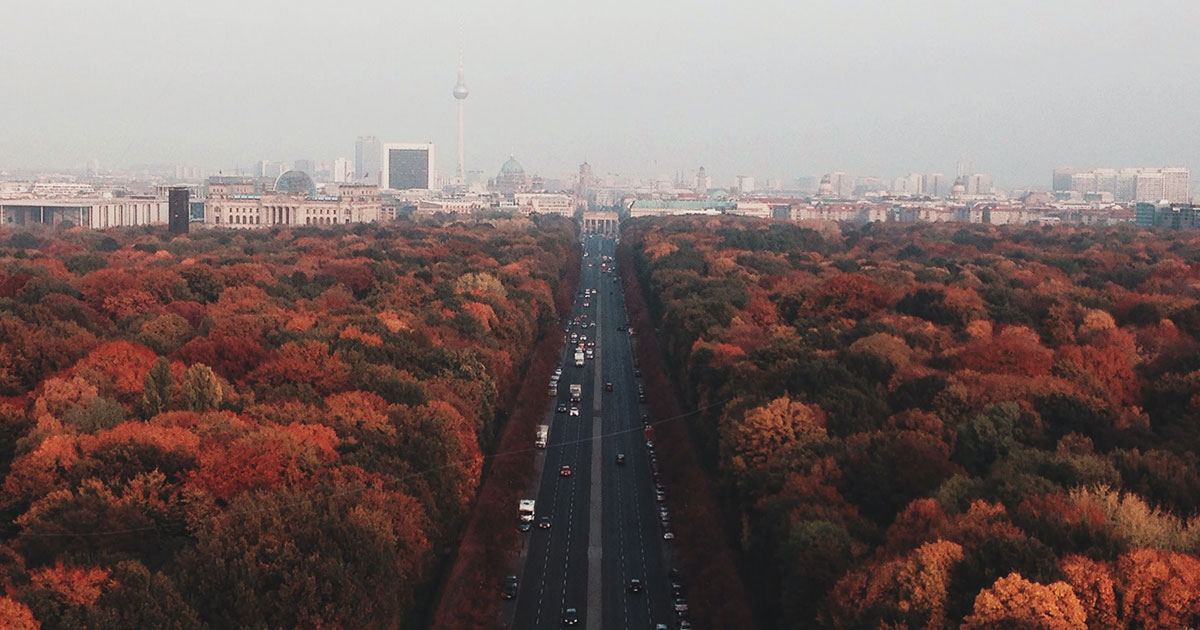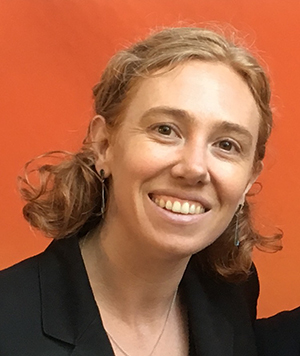LETTERS FROM BERLIN
★ ★ ★ ★
BACK TO BASICS

By Annie Mark-Westfall
The second wave of the Covid-19 pandemic has arrived in Berlin with the autumn rain. My existence here feels more and more like living in a bubble; my experience as an expatriate floating between cultures, amplified by social distancing and the lockdowns that punctuate 2020. My children’s daycare is currently closed again, due to a confirmed Covid case. I steal moments between work and childcare, trying to form a narrative to make sense of the world; my world.
My Facebook feed is full of memories from this time last year. Photos of my Grandma Bea, who is 101 years old and still lives on her own in the house where she has been for the past six decades. I gaze at the pictures, my lifeline to the outside world.
Little oddities of hers that bemused me have taken on new meaning. Like the fact that she runs Ziploc bags through the dishwasher, using the single-use plastics over and over again; the stack of plastic Mott’s applesauce single-use containers in her cupboard, which she insists on washing and reusing as tiny bowls. All of these signs that her formative years were during the Great Depression.
Phrases like “Depression-era” reduce the human experiences and the traumas of uncertain times. They roll easily off the tongue. At the same time, perhaps, they perfectly encapsulate all of that in a single word, too. We all understand the implications when someone sighs, “Oh, 2020.”
My WhatsApp mom groups are full of concern about the impacts and manifestations of this year’s stresses on our children. I ask for more detail, certain that our lack of sleep and mealtime battles have little to do with Covid.
And then this morning, my 3-year-old burst into the room, asking for help with her mask.
Oh, are you going to be a doctor?
No, I’m going to the grocery store!
It is a strange thing, to exist in a moment that you know already lives in the history books of the future. A future that feels so uncertain and unknowable, outside of this basic fact of its very existence. Perhaps this is a sign of my own evolution; I used to think moments like this meant the end of the world, rather than a shift.
This understanding causes me to re-open the histories that I have previously taken for granted, and examine them in a new light.
A family joke is that my father never fails to shout, “Fern Street!” each time we pass the road that contains his childhood home. Fern Street lies between my grandmother’s house and the centralized business district of her New York City suburb. We pass it frequently. As my mother once stated, “Yes, honey, we all know where Fern Street is.”
I reconsider my father’s penchant for reminding us of his own childhood home. His family moved when he was 15, after his older brother broke his neck playing college football. The Fern Street house had too many stairs, and the family needed a wheelchair ramp, and a ground-floor bedroom for my quadriplegic uncle.
This sentence, this story, flows easily as family lore tends to do; it is a neatly packaged summary, omitting the human part of the experience. By the time I was old enough to ask why my uncle was stuck in a wheelchair, he was a successful entertainment lawyer, a bigshot executive working at Comedy Central—he rolled around in a leather jacket, handsome and wickedly smart, father to three children. I took this “happy ending” for granted, glossing over his year in the hospital; my grandfather’s deep anguish about “The Accident” that woke him in the middle of each night and caused him to pace the hallways until the day he died.
The importance of stories, storytelling, and owning our stories is a lesson that I am learning and re-learning. It is clear and obvious, and yet each time I circle back around to this neatly summarized point, this cliché, I do so with a deeper understanding and experience of what a story is. Why Fern Street is more than a street; the symbolism of a mask, and its switch from an aspiration to a basic necessity.
It is often said that learning the German language is just relearning the same concepts, but adding building blocks. I began learning this language at age 31, and made my first leap forward by roundly disregarding all traditional advice, and ignoring the supposedly important genders of each noun. As a consequence, the more I advanced in German, the more I realized the importance of this building block. It is essential, for example, in order to state who is doing what to whom. My 5-year-old can tell you how incredibly important this information is.
In order to progress in German, then, I had to first go back and relearn the genders for nouns. A basic lesson from introductory classes.
And for me, this is also the lesson of 2020 and Covid-19. This return to the foundational building blocks of the human experience: stories; compassion; empathy; endless snacks. And 2020 has also clearly highlighted the fundamentals of the progressive society that I want to live in. One based on science, care for nature, social justice, and fair and open democracy. Perhaps with these lessons learned, it will be truly possible for us to rebuild a better post-Covid-19 world.

Annie Mark-Westfall graduated from Kenyon College in Ohio. As a former Fulbright grantee and Robert Bosch Foundation fellow, she views herself as a cultural ambassador. Her day job is with an international conservation organization.
























Hallo Annie,
habe leider deine Mailadresse nicht, aber eine wichtige Nachricht für dich. Meldest du dich bitte mal bei deiner Ex-Nachbarin. Danke und liebe Grüße